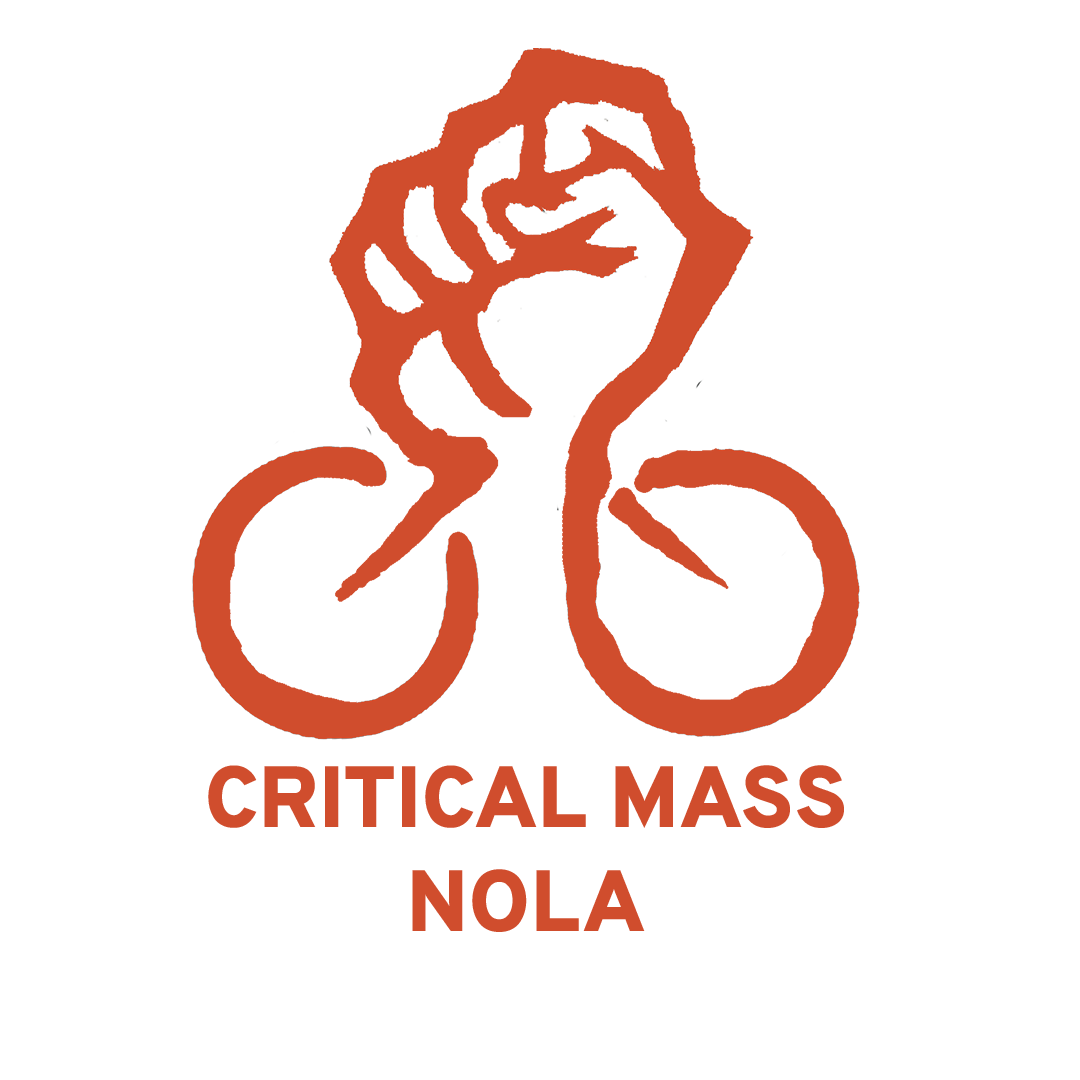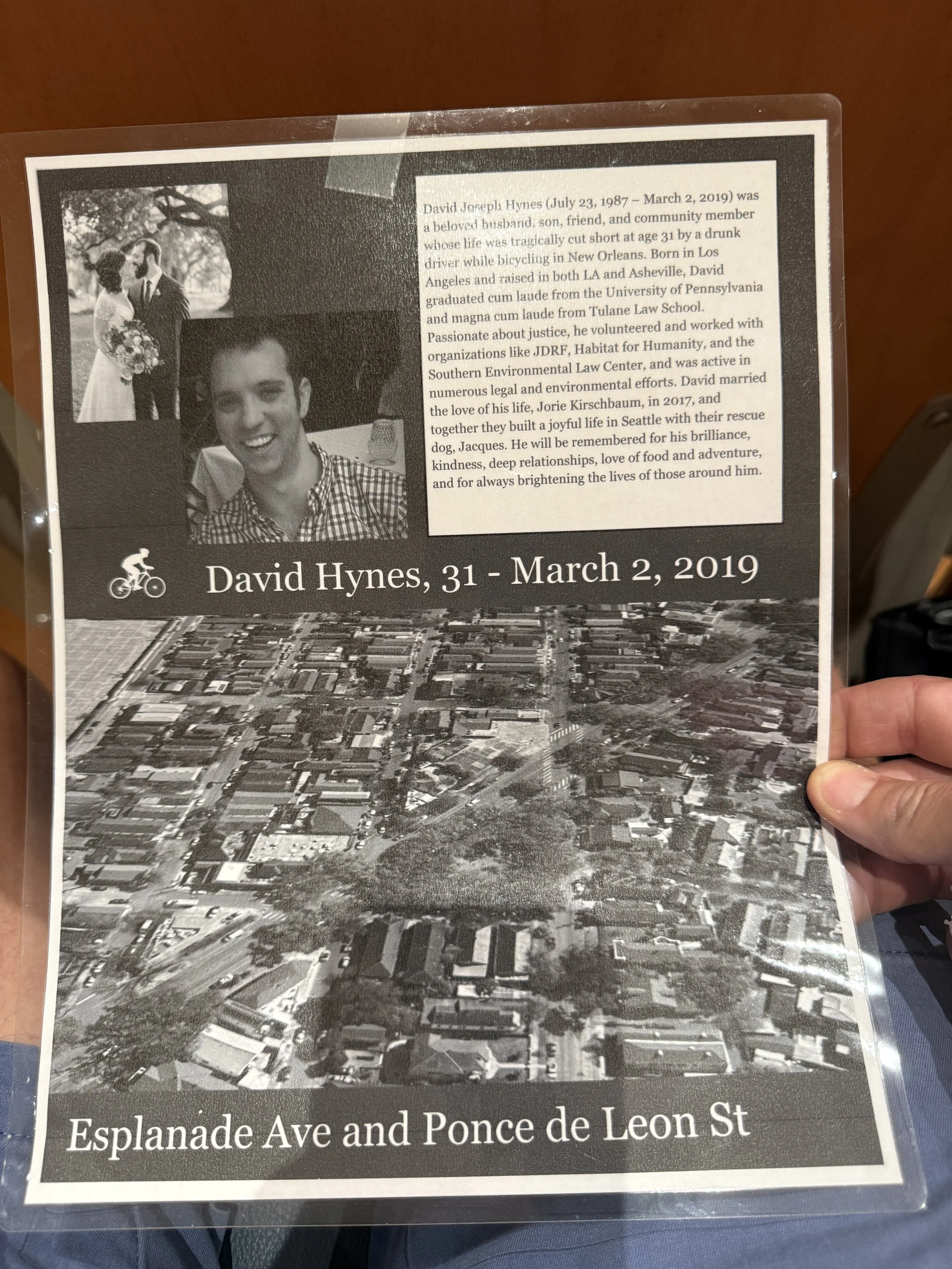This Could Have Been Any One of Us
At the City Council Transportation hearing today, I was approached by a representative from Bike Easy and the New Orleans Complete Streets Coalition in City Hall. They handed me a laminated sign bearing the name and photograph of David Haynes—one of many cyclists who never made it home. They asked if I would hold it during Bike Easy’s presentation before the sole member of the city council, Eugene Green, that showed up to the transportation committee meeting.
David Hynes, along with Sharree Walls, was killed on March 2, 2019, on Esplanade Avenue when a drunk driver sped over 80 miles per hour into the bike lane during Mardi Gras weekend. The driver killed two and injured seven. That stretch of road, like so many in this city, was never truly designed for people—it was designed for cars.
As I waited for the coalition’s turn to speak, I read the brief bio printed next to David’s picture on the sign I was handed. David was only 31. A Tulane Law School graduate. A tireless volunteer for humanitarian causes. A man who had married the love of his life just two years before his life was cut short by a motor vehicle.
As I read his memorial, I couldn’t help but feel it could have been my face on that placard—or yours, or one of the many comrades reading this. We are riding every day through bloodstained corridors, down streets that have already claimed names we should never have had to learn this way.
When it was our turn to address the council, it was emphasized that St. Clause Ave. was a state highway. Through that is true we ask our city officials to be vocal with bicyclist as we engage the state. St. Cluade runs through our neighborhoods, our homes, our lives. We demand the City of New Orleans not hide behind jurisdictional boundaries, but to stand with us—because we are the city.
One of the most powerful actions the city can take is to lead by example—to set a paradigm for the kind of infrastructure we demand from DOTD. It’s difficult to ask someone to stop smoking with a cigarette dangling from our lips. We need to take leadership in developing the infrastructure we want the state to implement.
After Hurricane Katrina, we turned to the Netherlands to learn how to live with water. We should now turn again to the Dutch—not just for climate resilience, but for transportation justice. In the Netherlands:
27% of all trips nationwide are made by bicycle.
In cities like Amsterdam and Utrecht, that figure climbs to over 50%.
Women make more bike trips than men, and children ride to school daily on protected networks.
Their streets are not just engineered—they are democratized.
Imagine a New Orleans where women and children feel safe biking to school or the grocery store—not just on during the day on the Greenway, but at all hours on Claiborne, Canal, Broad, and St. Claude. Where a mother pushing a stroller doesn’t have to fear being run over when crossing a street.
Why should we go to Portland or Minneapolis or San Francisco to learn about bike infrastructure? They should come here—to New Orleans—to study how a grassroots movement took control of its own streets and built something revolutionary. Infrastructure that not only protects bodies, but dignifies lives.
It’s our understanding at Critical Mass Nola that law enforcement has failed to keep us safe. The only assurance we have is infrastructure that keeps us safe and slows down traffic.
We at Critical Mass Nola know the truth—law enforcement has failed to protect us. They show up after the tragedy, not to prevent it. The only reliable protection we have is infrastructure that slows down cars, that separates bikes, that saves lives.
Ride with us every last Friday of the month, volunteer to push our agenda, be apart of our community engagement rides. Lie down with us during our die-in’s, and ride with us afterward. Speak, organize, and build the city we deserve. With a united voice, we can build not just bike lanes, but a democratic city—where communities control their own streets, resources, and futures.
In Solidarity and Struggle,
Eric Gabourel
Organizer, Critical Mass Nola
New Orleans City Council Transportation Committee Meeting on Tuesday, July 22, 2025.


